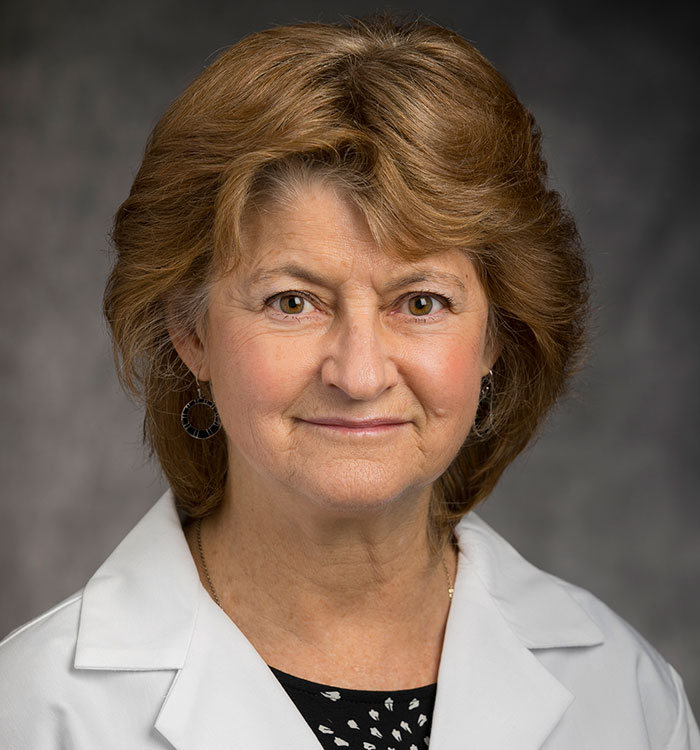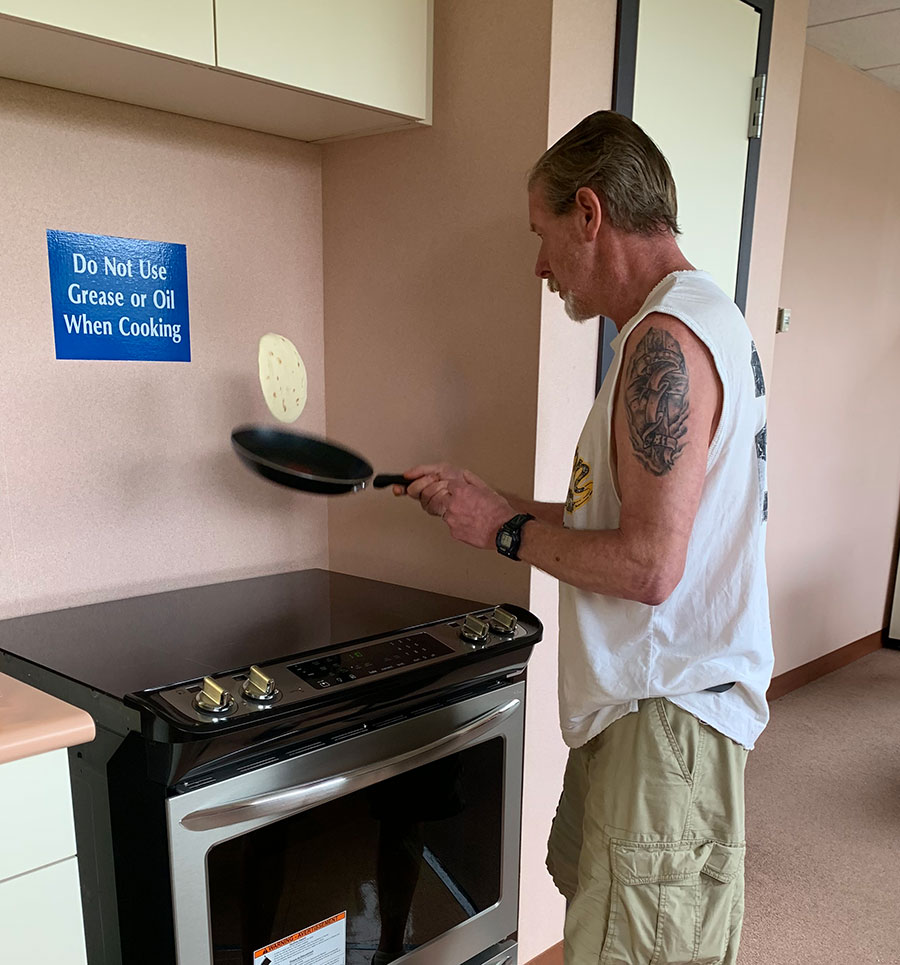Neuropsychological Rehabilitation: A Primer for Physicians
October 07, 2019
UH offers one of the few rehab programs in U.S. health systems
Innovations in Neurology & Neurosurgery | Fall 2019
After a moderate to severe acquired brain injury (ABI), patients may go through a period of confusion and emotional distress. They may get frustrated more easily. They may have trouble paying attention. The words they’re thinking may come out jumbled.

These kinds of emotional, behavioral and cognitive changes that accompany ABI confuse and frighten both patients and their families, and may limit an individual’s ability to return to work and to enjoy meaningful activities and family relationships. Neuropsychological rehabilitation helps patients learn about brain injury and its consequences, as well as develop new strategies to help reduce these consequences and get back to achieving their life goals.
University Hospitals is one of the few health systems in the United States that provides neuropsychological rehabilitation. “We don’t want to leave our patient without help and support after they finish their acute care and early rehabilitation,” says Jill Winegardner, Ph.D., Director of Neuropsychological Rehabilitation for University Hospitals Neurological Institute. “Changes in thinking, behavior and emotions are hard to understand. But research demonstrates that, for example, patients who receive education about traumatic brain injury (TBI) do much better than those who don’t, because it reduces anxiety and worry.”
What Is Neuropsychological Rehabilitaton?
As Winegardner explains, neuropsychological rehabilitation starts with “the process of creating a sense of safety” for the patient and “equips them with the knowledge and information they need to understand that what they’re thinking and feeling is a normal response” after brain injury.
Neuropsychological rehabilitation consists of interventions designed to improve cognitive, emotional and psychosocial functioning. Interventions include individual and group cognitive rehabilitation, psychotherapy and psychoeducation.
Interventions are wide-ranging and involve multiple specialists. Elements of neuropsychological rehabilitation include:
- Starting with psychoeducation to help patients and their families understand why they are experiencing particular changes
- Giving patients tools and strategies to help them adapt to cognitive disabilities to improve their overall level of functioning and quality of life
- Using cognitive rehabilitation to address issues with attention, concentration, perception, memory, comprehension, communication, reasoning, problem-solving, judgment, initiation, planning, self-monitoring and awareness
- Putting strategies into practice by engaging in meaningful functional activities
- Offering psychological support to help patients and their families cope with the life-altering consequences of ABI
How Neuropsychological Rehab Works
Neuropsychological rehabilitation combines elements of psychotherapy, occupational therapy and cognitive rehabilitation. The newly expanded neuropsychological rehabilitation service at UH includes Winegardner, occupational therapist Beth Norton, OTR/L, and neuropsychologists Cynthia Griggins, PhD, and James Mack, PhD. The team also has support from Maulik Purohip, MD, UH Associate Chief Medical Information Officer and staff physician for brain injury and neurorehabilitation, and neuropsychiatrist Rajeet Shrestha, MD.

Neuropsychological rehabilitation at UH involves both group and individual sessions, similar to programs at the Oliver Zangwill Centre for Neuropsychological Rehabilitation in Cambridgeshire, United Kingdom, where Winegardner served as lead clinical psychologist. Family members and caregivers participate in patients’ care.
Rehabilitation starts with assessment. Neuropsychologists administer cognitive tests, while occupational therapists may use practical, functional tasks. After developing strategies to cope with memory, attention, mood and other difficulties, patients learn how to integrate those skills into their daily lives. Occupational therapists may use shopping, driving and preparing meals as ways to practice cognitive abilities, for example.
In some cases, an activity of daily living coincides with career responsibilities. One patient was physically healthy but could not safely return to work as a chef after TBI. Working in University Hospitals Cleveland Medical Center’s mock kitchen, the patient gradually learned to prepare simple meals. To improve the patient’s skills, Norton suggested strategies such as thinking about the whole meal first and writing down each step to avoid distraction. The chef progressed to more complex dishes, first without and then with distractions. In time, he developed the skills and focus to return to work.
“His success came from a combination of practice, learning strategies, and becoming more confident and in tune with aspects of his identity that had been taken away from him,” says Winegardner.
Who Can Benefit
Patients with acquired brain injury, including TBI, brain tumor, encephalitis, and stroke, can benefit from neuropsychological rehabilitation. Winegardner says the practice is especially beneficial for patients who want to go back to work or school, improve family relationships and generally feel better about their condition and identity. Patients who are past the early recovery period, medically stable and able to attend weekly or biweekly rehabilitation sessions are best suited for the program.
UH Cleveland Medical Center is lucky to have two of a small number of neuropsychological rehabilitation specialists. Winegardner hopes to grow the program to serve a wider subset of patients in time. For now, her goal is to raise awareness about the program and how it helps people with ABI regain their sense of self and accomplish personal goals.
To refer a patient or to learn more about the neuropsychological rehabilitation program, call 216-844-4805.


